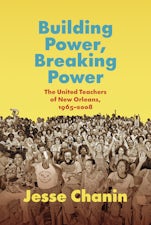Many Excellent People
Power and Privilege in North Carolina, 1850-1900
By Paul D. Escott
366 pp., 6.125 x 9.25
-
Paperback ISBN: 978-0-8078-4228-7
Published: August 1988 -
E-book EPUB ISBN: 978-1-4696-1096-2
Published: December 2012 -
E-book PDF ISBN: 979-8-8908-6563-2
Published: December 2012
Buy this Book
- Paperback $47.50
- E-Book $29.99
For Professors:
Free E-Exam Copies
Awards & distinctions
1986 Mayflower Cup for Nonfiction, Society of Mayflower Descendants in the State of North Carolina
Working within the new social history and using detailed analyses of five representative counties, wartime violence, Ku Klux Klan membership, stock-law legislation, and textile mill records, Escott reaches telling conclusions on the interplay of race, class, and politics. Despite fundamental political and economic reforms, Escott argues, North Carolina's social system remained as hierarchical and undemocratic in 1900 as it had been in 1850.
About the Author
Paul D. Escott is Reynolds Professor of history and dean of the Undergraduate College of Arts and Sciences at Wake Forest University. His books include After Secession, Slavery Remembered, A People and A Nation, and North Carolina Yeoman.
For more information about Paul D. Escott, visit
the
Author
Page.
Reviews
"Exhaustively researched and meticulously documented, the book emphasizes that, after all, history is the story of people. . . . A fine addition to the literature about the nineteenth-century South and an example of the understanding of the period that is possible from such an ambitious overview."--North Carolina Historical Review
"In this well-researched and thought-provoking survey of society and politics in North Carolina from the eve of the Civil War to the end of the nineteenth century, Paul D. Escott adroitly examines social attitudes, power relationships, and other issues relating to class, race, and power."--Georgia Historical Quarterly




